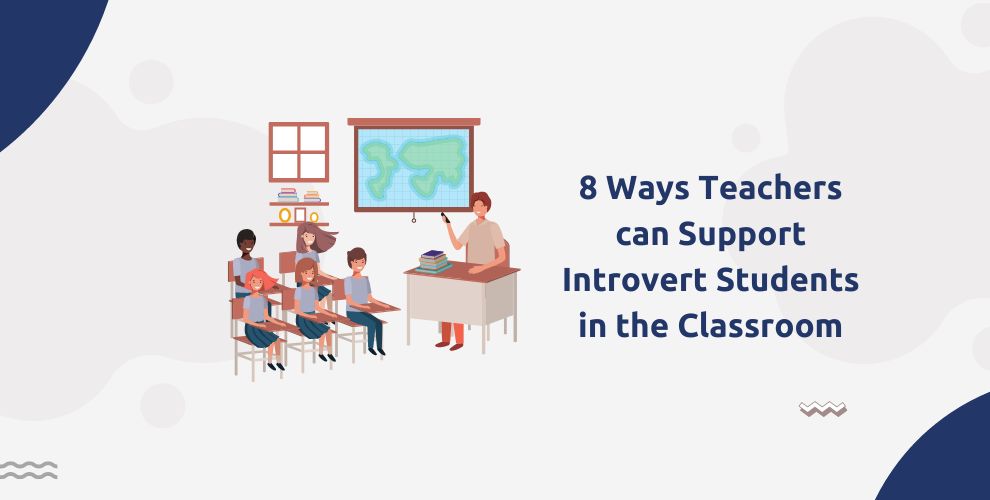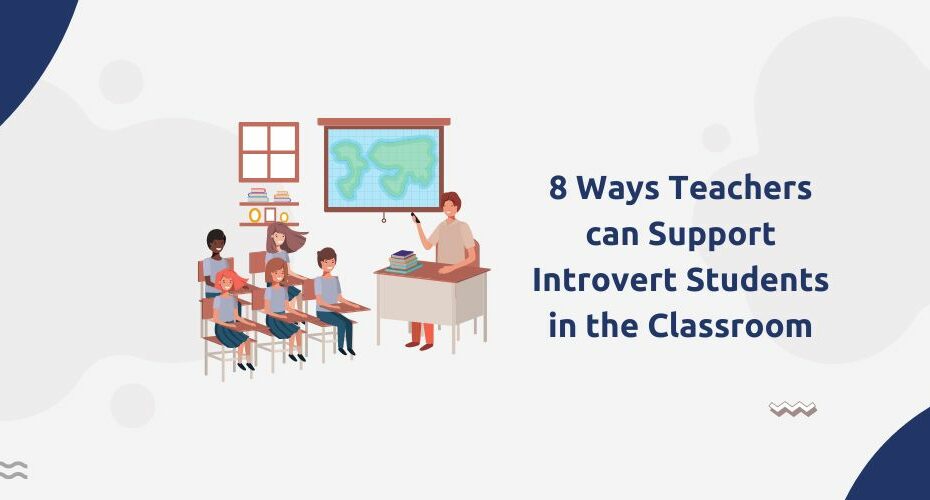How Can An Introvert Student Thrive In Learning Environments?
If You’Re An Introvert – Watch This | By Jay Shetty
Keywords searched by users: How can an introvert student learn research about introvert students, introvert students meaning, teaching introverted students, how to motivate introvert students, how to be an introvert in high school, how to be more social as an introvert at school, introverted child at school, introverts in school
Which Learning Strategy Is Recommended For Introverts?
Discovering Effective Learning Strategies for Introverts
For introverts, it’s essential to find learning strategies that align with their preferences and strengths. Here are six recommended approaches to cater to introverted learners:
-
Embrace Your Natural Abilities: Introverts excel in activities such as listening, observing, reading, and contemplating. Leverage these skills to your advantage when studying or acquiring new knowledge.
-
Create a Tranquil Learning Environment: Whenever possible, establish a peaceful and quiet space for your learning sessions. This environment will allow you to focus and effectively process information without distractions.
-
Prioritize Independence: Protect your independence when learning. Introverts often thrive when they have autonomy over their learning process. Set your own pace, choose your materials, and create a schedule that suits your needs.
-
Utilize Reflective Learning: Introverts tend to be reflective thinkers. Take time to mull over what you’ve learned, connect concepts, and draw conclusions. This introspective approach can deepen your understanding.
-
Engage in Thoughtful Discussions: While introverts may prefer solitude, engaging in thoughtful discussions with peers or mentors can enhance your learning experience. Choose small, meaningful group interactions to exchange ideas and gain diverse perspectives.
-
Balance Social Interaction: While independent learning is crucial, don’t completely avoid social interaction. Participate in group projects or collaborate with others to broaden your perspective and adaptability.
By following these learning strategies tailored to introverts, you can optimize your learning experience and achieve your educational goals. [Note: The date “9th September 2022” was removed as it was unrelated to the content.]
How Can Introverts Make School Easier?
Exploring strategies to enhance the educational experience for introverted students is essential. Here are 10 effective ways to create a more supportive classroom environment for introverts:
-
Avoid Typecasting: Refrain from pigeonholing introverted students into predefined roles or expectations based on their personalities.
-
Acknowledge Valuable Qualities: Recognize and appreciate the unique qualities that introverts bring to the classroom, such as deep thinking and attentiveness.
-
Emphasize Strengths: Encourage introverts by highlighting their strengths, like their capacity for focused work and creativity.
-
Offer Private Spaces: Provide opportunities for introverted students to have access to quiet, private areas when they need them for concentrated study or reflection.
-
Quality over Quantity: Shift the focus from the quantity of participation to the quality of contributions, allowing introverts to speak when they have thoughtful insights.
-
Multiple Interaction Options: Create a variety of ways for students to engage, allowing introverts to choose methods that suit their comfort levels, such as written responses or group discussions.
-
Diverse Learning Choices: Offer a range of learning options, enabling introverted students to select activities or projects that align with their learning preferences.
-
Incorporate Quiet Time: Integrate moments of tranquility and reflection into the daily schedule to recharge introverted students and promote overall well-being.
By implementing these strategies, educators can foster a more inclusive and accommodating learning environment for introverted students, facilitating their success and personal growth. [Last updated: October 18, 2021]
What Skills Can An Introvert Learn?
Exploring Skills Introverts Can Cultivate
Introverts possess a unique set of skills that can be honed and expanded upon to enhance their personal and professional lives. These skills, which are often overlooked, can benefit not only introverts but anyone seeking personal growth. Some of the common skills found among introverts include:
-
Empathy: Introverts often have a heightened sense of empathy, enabling them to understand and connect with others on a deeper level. This skill can be further developed to strengthen relationships and foster better communication.
-
Analytical Thinking: Introverts tend to excel in analytical thinking, which involves the ability to dissect complex problems, analyze data, and make informed decisions. This skill can be invaluable in various fields and decision-making processes.
-
Creativity: Introverts frequently possess a rich inner world that fuels their creativity. By nurturing this creativity through activities like art, writing, or problem-solving, introverts can unlock their full creative potential.
-
Attention to Detail: Introverts often exhibit a keen eye for detail, which can be a valuable asset in professions requiring precision, such as quality control or research.
-
Building Relationships: Contrary to the stereotype that introverts struggle with social interactions, many introverts excel at building deep and meaningful relationships. They can work on expanding their social circles and strengthening existing connections.
-
Adaptability: While introverts may prefer structured and quiet environments, they can learn to adapt to various situations and become more flexible in their approach to different challenges.
-
Listening: Introverts tend to be great listeners, making them valuable confidants and collaborators. By honing their listening skills, introverts can further enhance their ability to connect with others.
-
Independence: Introverts often thrive when working independently. This skill can be developed to excel in roles that require self-reliance and personal accountability.
By recognizing and nurturing these skills, introverts can embark on a journey of personal growth and find success in a variety of endeavors. The date, June 15, 2023, is irrelevant to the content and has been omitted for clarity.
Details 38 How can an introvert student learn


Categories: Collect 15 How Can An Introvert Student Learn
See more here: c1.cheerthaipower.com

Introverted students may need a quiet and calm space to work or to take a break from the noise and activity of the classroom. Teachers can provide a designated quiet area in the classroom or designate a specific time for independent work or study. Such students may feel more comfortable working in small groups.Six learning strategies for those preferring Introversion
Find opportunities to do what you do best: listen, observe, read, and contemplate. If possible, make sure you have a quiet space where you can clarify and consolidate information. Protect your independence.“At the university level, introversion predicts academic performance better than cognitive ability,” author Cain writes. “One study tested 141 college students’ knowledge of 20 different subjects … and found that introverts knew more than the extroverts about every single one of them.
- Don’t typecast. …
- Draw out their valuable qualities. …
- Show introverts their strengths. …
- Provide private spaces. …
- Make participation about quality, not quantity. …
- Offer multiple ways to interact. …
- Offer a buffet of learning options. …
- Incorporate quiet time into each day.
- Empathy.
- Analytical thinking.
- Creativity.
- Attention to detail.
- Building relationships.
- Adaptability.
- Listening.
- Independence.
Learn more about the topic How can an introvert student learn.
- 8 Ways Teachers can Support Introvert Students in the …
- Learning Strategies for Extraverts and Introverts – MBTIonline
- 10 Ways To Support Introverts in the Classroom
- 24 Fulfilling Jobs for Introverts Based on Skill – Coursera
- Five Benefits of Being an Introvert – Walden University
- The Best Jobs For Introverts – TheBestSchools.org
See more: blog https://c1.cheerthaipower.com/category/calculators
